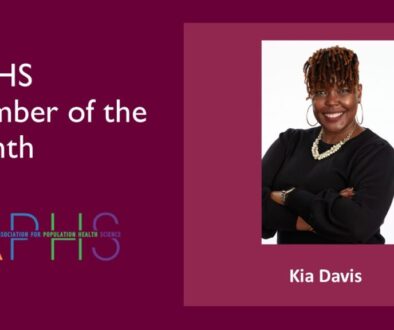Mustafa Hussein is an Assistant Professor in Public Health Policy & Administration at the Joseph J. Zilber School of Public Health, University of Wisconsin-Milwaukee. He joined IAPHS in 2015 (and has attended all 3 annual meetings!). Learn more about Mustafa on this website: https://uwm.edu/publichealth/people/hussein-phd-mustafa/
Tell us a little about yourself, where are you from, where did you go to graduate school, what makes you jump out of bed each morning?
I grew up in Al-Minya (a.k.a. Minia), a city of about 300,000 people on the Nile valley in Upper Egypt, 150 miles south of Cairo. I graduated from Minia University with a pharmacy degree in 2008, and started graduate school in the US shortly after, first in chemistry at Washington State, then completed a PhD in health policy at Tennessee in 2014, followed by a two-year postdoc in social epidemiology at Drexel. I find myself drawn very much to questions about social inequality in health, especially questions at the intersection of social theory, quantitative research, public policy, and moral/political philosophy.
How do you define yourself as a population health professional?
My work currently focuses on the role of policies, systems, and institutions as structural drivers of the levels and social distribution of health in the population. My collaborators and I examine these phenomena in various populations, including at the urban, national, and cross-national levels.
What disciplines do you engage with and are there disciplines that you would like to engage with?
I was trained in health policy, health economics, applied statistics/econometrics, and social epidemiology. I have also enjoyed learning and drawing insights from sociology and political science. I hope to engage more closely with political sociology and complex systems methods in the near future.
Describe a current project/initiative that you are excited about.
I have a project analyzing the potential health effects of the living wage ordinances passed by many US cities in the 1990s and early 2000s. I think this project promises to provide possibly novel insights about design of labor policy with optimal health effects, including effects of not only the living wage mandates but also of other labor protections (e.g. collective bargaining). We will examine the effects of policy elements on both self-reported health outcomes as well as biomarkers and measures of allostatic load. We are fortunate to have this work funded by the Robert Wood Johnson Foundation Evidence for Action program.
Name a population health professional who you admire and why?
That is a tough question! I admire many population health scientists, first and foremost my mentors (Teresa Waters, Ana Diez Roux, and Barbara Wolfe) who have been incredibly generous to me, and from whom I have continued to learn so much. Besides them, I also particularly admire Nancy Krieger, Ichiro Kawachi, and Jay Kaufman. To me, their work always reflects exceptionally profound understanding of the relevant conceptual and methodologic issues across disciplines, and I hope to achieve that level of depth in my work someday.
How did you hear about IAPHS?/Why did you decide to become a member of IAPHS?
I heard about IAPHS in 2015. To me, IAPHS brings together the best of public health and social science research worlds, and offers great opportunities to connect with like-minded population health researchers whose work transcends disciplinary boundaries.
Have you attended an IAPHS meeting? If so, what do you like most about these meeting?
Yes, I have attended each and every IAPHS meeting since 2015. I particularly like the quality and rigor of presented research and the depth of discussions the meetings have fostered. I also like the truly interdisciplinary network of researchers and practitioners I get to connect with while at IAPHS.
What would you tell someone who is considering joining IAPHS?
I would say certainly go for it; I am sure it will be quite rewarding for you as it has been for me.
What would you like to see IAPHS do in the future?
I hope the meetings will continue to be relatively small in size, with just a few concurrently held sessions.
Favorite population health relevant book:
House, James S., Robert F. Schoeni, George A. Kaplan, and Harold Pollack, Making Americans Healthier- Social and Economic Policy as Health Policy (New York, NY: Russell Sage Foundation, 2008).
Oakes, J. Michael, and Jay S. Kaufman, Methods in Social Epidemiology 2nd ed. (San Francisco, CA: Jossey-Bass, 2017).
Krieger, Nancy, Epidemiology and The People’s Health- Theory and Context (New York, NY: Oxford University Press, 2011).
Favorite population health relevant article(s):
Krieger, Nancy, “Health Equity and the Fallacy of Treating Causes of Population Health as if They Sum to 100%,” American Journal of Public Health, 107 (2017), 541-549.
Kjellsson, Gustav, Ulf-G Gerdtham, and Dennis Petrie, “Lies, Damned Lies, and Health Inequality Measurements: Understanding the Value Judgments,” Epidemiology, 26 (2015), 673-680.
Culyer, Anthony J., and Robert G. Evans, “Mark Pauly on welfare economics: Normative rabbits from positive hats,” Journal of Health Economics, 15 (1996), 243-251.
Favorite movie, band, non-fiction, book, etc.:
What Kind of Creatures Are We? (Chomsky)
One Hundred Years of Solitude (García Márquez)
1984 (Orwell)
Inglorious Bastards (Tarantino, Pitt, Waltz)






All comments will be reviewed and posted if substantive and of general interest to IAPHS readers.